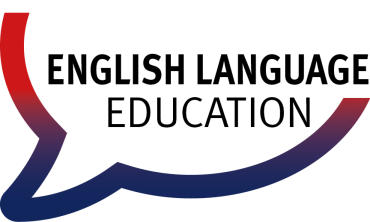|
Daniel Becker (WWU Münster) - The Representation of Video Games in German EFL Textbooks
Digital gaming is an integral part of contemporary youth culture (Mpfs 2022) and plays an important role in teenage identity formation and communication (Jones 2018). As such, digital games also offer a great potential to become authentic learning materials in English language education. Yet, the question in how far this potential has actually found its way into German EFL classrooms still remains to be answered. My presentation takes a first step towards responding to this question: Using a thematic discourse analysis (Höhne 2010), I examine to what extent (and how) video games are represented in German EFL textbooks, as the most prominent material used in the classroom.
Works Cited
Höhne, Thomas (2010). Die Thematische Diskursanalyse - dargestellt am Beispiel von Schulbüchern. In: R. Keller et al. (eds.), Handbuch sozialwissenschaftliche Diskursanalyse. 4th edition. Wiesbaden: Springer VS. 423-455.
Jones, Roger Dale (2018). Developing Video Game Literacy in the EFL Classroom: A Qualitative Analysis of 10th Grade Classroom Game Discourse. Tübingen: Narr.
Medienpädagogischer Forschungsverbund Südwest [Mpfs] (2022). JIM-Studie 2022: Jugend, Information, Medien. Online: https://www.mpfs.de/studien/jim-studie/2022/ [accessed January 23 2023].
|
|
Jonathon Reinhardt (University of Arizona) - Gameful L2 teaching and learning: Taking it seriously into the future
While the young field of gameful L2 teaching and learning (GL2TL) faces criticisms and challenges, a survey of recent studies shows a robust and diverse set of research questions and practices that are examining L2 gaming practices in the wild, developing and applying new pedagogical frameworks, attempting to correlate designs and mechanics with learner behaviors and learning outcomes, and exploring how to educate teachers. In short, there are reasons to take the field seriously and be optimistic for its future.
|
|
Torben Schmidt (Leuphana University Lüneburg) - Pre-Service Teachers Developing Games for the EFL classroom – Potentials, Procedures, Products
Games and the transfer of game mechanics to educational contexts have received increasing attention from educators and researchers in recent years. However, the systematic integration of game development into the training of teachers represents a research gap. This presentation reports on the structure, goals, activities and products of a Masters level seminar for future English as a foreign language teachers. Potentials of the development process for the participants will be discussed and research findings of the action-research projects will be presented.
|
|
Thomas Strasser (Pädagogische Hochschule Wien) - Bring your A-game. The impact of prompt-engineering AI technologies in the EFL classroom.
The potential of Artificial Intelligence (AI) for language learning, particularly in the fields of intelligent practice and language production, has been of particular interest in foreign language teaching (Pokrivcakova, 2019; Schmidt & Strasser, 2022). Thanks to recent advances in natural language processing (NLP) (Banerjee et al., 2020; Meurers, 2020), AI-based applications such as the Midjourney Bot and GPT-3 chatbots not only allow the visualization of specific vocabulary, lexical prompts and narrative elements in text production, but also facilitate and scaffold creative writing processes in the foreign language classroom. With reference to the Change! Edumindset Project, which explores the integration of disruptive technologies in language learning, this presentation discusses the requirements that prompt-engineering AIs place on foreign language teachers and their learners.
In the practical part of the talk, various AI-generated prompts relevant for classroom use will be presented, methodologically and ethically discussed. Among these, there will also be game-based scenarios, in which EFL learners make interactive learning experiences with AI-based systems. Using these AI-generated prompts, the learners create their own script, with a detailed description of the protagonists, setting, and storyboard. The presentation thus contributes to the development of a first generic framework of future, AI-assisted creative engineering competences for foreign language teachers and learners.
Works cited:
Banerjee, A., Lamrani, I., Hossain, S., Paudyal, P., & Gupta, S. K. S. (2020). AI Enabled Tutor for Accessible Training. In I. I. Bittencourt, M. Cukurova, K. Muldner, R. Luckin, & E. Millán (Hrsg.), Artificial Intelligence in Education (S. 29–42). Springer International Publishing. Springer Link
Meurers, D. (2020). Natural Language Processing and Language Learning. In C. A. Chapell (Hrsg.), The Concise Encyclopedia of Applied Linguistics (S. 871–831). Wiley. Link to publication
Pokrivcakova, S. (2019). Preparing teachers for the application of AI-powered technologies in foreign language education. Journal of Language and Cultural Education, 7(3), 135–153. Link to publication
Schmidt, T., & Strasser, T. (2022). Artificial Intelligence in Foreign Language Learning and Teaching. A CALL for Intellgent Practice. Anglistik, 33(1), 165–184. Link to publication
|
|
Sander Winter (Enversed Studios) - Title tba
Gaming technology is starting to play an increasingly important role in the fields of educations, training and competence development. Virtual training applications allow educators to close the gap between theoretical practice and professional use-cases because these teaching methodologies correspond to the reality in which these courses are ultimately applied. Thanks to the reactive nature of a game, a digital environment is able to respond realistically to actions performed in it: students and employees can experience the consequences of incorrect behavior without failure costs or risk of injury.
By integrating targeted scoring systems and feedback processing, it is possible to analyze behavior and discuss it. This way, users can also be assessed on the justification or motivation behind their actions, making them more self-reliant. We are working towards a future in which gaming technologies becomes a structural part inside the spectrum of blended learning. Within this context, we are currently investigating in what way this type of technology leads to safer work environments and corporate cultures.
|



